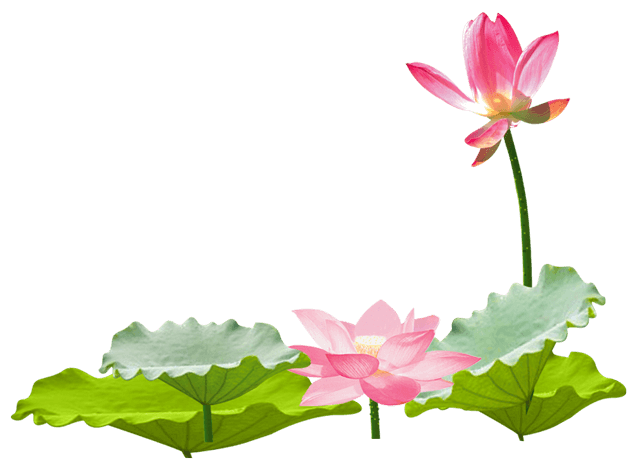Welcome to
Arogya
Yogshala

Your Sanctuary for Wellness and Harmony
Your Sanctuary for Wellness
and Harmony
Who we are
Elevate Your Body, Elevate Your Being.
At the heart of true transformation lies a balance between the physical and the spiritual. Our programs are designed to help you move with intention, breathe with awareness, and connect deeply to your inner self.


No false promises, no side effects—just results.
No false promises, no side effects—just results that come from natural methods, mindful habits, and consistent care.
4.7
Discover Harmony

Mindfulness
Mindfulness means being fully present in the moment, aware of thoughts and feelings, calmly and without any judgment.

Therapy
Therapy is a safe and supportive space where individuals can explore their thoughts, emotions, and experiences .

Relaxations
Relaxation helps restore balance, calm the mind, ease tension, and recharge your body from daily stress and responsibilities.
Discover the Power of Presence with Arogya Yogshala
Discover the Power of Presence with Arogya Yogshala – Embrace mindfulness, inner peace, and holistic well-being through guided yoga and meditation.



Strong Body. Clear Mind. Open Heart.

Expert Instructors
Our expert instructors provide personalized guidance to help you achieve balance, strength, and peace.

Holistic Approach
Our holistic approach focuses on nurturing the mind, body, and spirit for complete well-being.

Empowering Workshops
Our empowering workshops provide practical tools and insights to help you grow and transform.
What we offer
Let the threads of life get connected with yoga.

Anxiety Relief
Explore gentle, proven methods to ease your mind and body. Use mindfulness and natural remedies to find peace, balance, and relief from anxiety.

Life Balancing
Find harmony in your daily routine with simple habits, mindfulness, and self-care. Achieve life balance by nurturing your body, mind, and relationships every day.

Reduce Stress
Reduce stress naturally with calming techniques, deep breathing, and mindful living. Embrace balance, stay present, and create space for peace in your everyday life.

Flexible Time
Enjoy the freedom of flexible time—balance work, rest, and personal moments at your own pace. Create a schedule that supports your lifestyle and well-being daily.

Ayurveda
Find harmony in your daily routine with simple habits, mindfulness, and self-care. Achieve life balance by nurturing your body, mind, and relationships every day.

Health Tips
Stay healthy with simple daily tips—eat balanced meals, stay hydrated, exercise regularly, and get enough sleep. Tiny daily habits build a strong foundation for long-term health and energy.
Why Choose Us
Let your inner peace blossom through the practice of yoga.
Diverse Class Offerings
Explore diverse yoga classes for every level—find balance, strength, and peace in every session.
Holistic Approach
Experience true well-being with a holistic approach that nurtures your mind, body, and spirit for balanced living.
Flexible Schedule
Enjoy a flexible schedule that fits your lifestyle—attend sessions anytime and stay committed to your wellness goals.
Commitment to Excellence
We are driven by a commitment to excellence, delivering quality, care, and consistency in every step of your journey.

Group Session
30-days plan
₹1,999
- Unlimited live, customised Yoga and Meditation Sessions
- Train anywhere
- Library of Meditational Audios
- 2 Nutrition Sessions
Unlimited Quarterly
₹4500
Valid for 90 Days
- Unlimited live, customised Yoga and Meditation Sessions
- Train anywhere
- Library of Meditational Audios
- 2 Nutrition Sessions
Advanced Care
₹6,999
Valid for 180 Days
- Unlimited live, customised Yoga and Meditation Sessions
- Train anywhere
- Attend anytime, any class as per your convenience
- Library of Meditational Audios
- 2 Nutrition Sessions
Total Wellness
₹11,999
Valid for 365 Days
- Unlimited live, customised Yoga and Meditation Sessions
- Train anywhere
- Attend anytime, any class as per your convenience
- Library of Meditational Audios
- 2 Nutrition Sessions
One To One Session
Essential Care
₹600
Per session
Valid for 30 Days
- 20 Live one-on-one yoga and meditation sessions
- Live one-on-one Nutrition session
- Train anytime, anywhere
- Text yoga/meditation instructor anytime
- Customised self practice plan
- Meditational Audios 2 ~ 3 times a week
- Dedicated customer success manager
- Share session with family
Advanced Care
₹500
Per session
Valid for 60 Days
- 40 Live one-on-one yoga and meditation sessions
- Live one-on-one Nutrition session
- Train anytime, anywhere
- Text yoga/meditation instructor anytime
- Customised self practice plan
- Meditational Audios 2 ~ 3 times a week
- Dedicated customer success manager
- Share session with family
Total Wellness
₹400
Per session
Valid for 90 Days
- 60 Live one-on-one yoga and meditation sessions
- Live one-on-one Nutrition session
- Train anytime, anywhere
- Text yoga/meditation instructor anytime
- Customised self practice plan
- Meditational Audios 2 ~ 3 times a week
- Dedicated customer success manager
- Share session with family
Client Feedback & Testimonial
Stretch your limits – enroll in our upcoming yoga workshop!
Join our upcoming yoga workshop and take your practice to the next level! Boost flexibility, build strength, and find inner peace with expert guidance from Arogya Yogshala.
Online Personal Yoga Classes or One to One Classes
An Online Personal Yoga Class or One-to-One Class constitutes undergoing training under the guidance of a certified personal instructor over a video call. The instructor will be able to guide you through the different workouts and keep an eye on whether or not you are following perfect form while doing yoga. More and more people have started switching to this type of training because of the many benefits it offers, such as:
❖ Since you do not have to go anywhere out to perform yoga, online personal training sessions offer a lot more convenience when it comes to managing your schedule. You can manage your timing according to your availability. No need to ask or have the consent of other group members.
❖ You will receive One to One and full attention and focus from an instructor during your yoga sessions. You will be corrected every time you need to be. Also, if you have any doubt or confusion regarding the classes, feel free to ask the instructor.
❖ One to one live yoga classes is excellent for beginners where you can learn at your own pace. Since beginners need to get more attention than intermediate and advanced ones, it will be much easier for them to learn basics through One-to-One live classes and to reach up to the level of advanced ones.
❖ Schedule a yoga class whenever you want with no time constraints. If ever you won’t be able to attend a live class, you will be free to ask the instructor to schedule an alternate class in place of that one.
❖ Tailor the class to your limitation, goals, and health concerns. Since it will be your oneto-one class, you will have the access to alter the classes and lessons according to your fitness levels and targets.
❖ The instructor will focus on only you, carefully and skillfully guide you from the start until the end of the yoga class. He will help you in improving your postures and forms and will make sure you have the best yoga experience.
Online Group Yoga Classes
As we know, a group yoga class can help us learn and grow while enjoying and building on the group’s energy, our group live stream yoga classes are perfect for you if you enjoy practicing with fellow yogis and delving deep into yoga with a beautiful yoga community. As the beautiful Buddhist chant goes:
BUDDHAM SARANAM GACCHÃMI
DHAMMAM SARANAM GACCHÃMI
SANGG̣HAM SARANAM GACCHÃMI
This means “I take refuge in the Buddha, I take refuge in the Dharma, and I take refuge in the Community (Sangham).”
The benefits of practicing group live yoga classes online are:
❖ Practicing yoga in a group helps in building synergy. You experience the power of group energy. The energy shared between all in group yoga classes is powerful, motivating, and can push us further because the energy that you will build by performing yoga poses, meditation, and chanting as a group will not be limited to the class only but will stay with you throughout your days and lives.
❖ When it comes to motivation, Group practice will motivate you to be more consistent and show up in class to practice with fellow yogis as it will foster a sense of friendly competition. But that doesn’t mean you have to defeat them. Instead, when you will see other members of the group yoga class are giving their best and improving day by day, it will instigate you to come outside your comfort zone and push your limits to achieve your desired goal.
❖ The rate of achieving any desired goal in your life, depends highly on the factor ‘How consistent you are?’ Including yoga practice in your daily life schedule can also be hard. And it becomes harder when you don’t have the support of a live yoga instructor or live group yoga class. It works as a motive every day to join the class and move one step further to achieve your goal. Therefore, a live group yoga class helps to overcome one of the hardest things about yoga, i.e. Consistency.
❖ As Charles Einstein said, “Enlightenment is a group activity.” Since you get to meet with like-minded people, practicing with a group helps build and foster a sense of friendship, community, and belonging by sharing their values. It will present you with a wonderful platform to share experiences and knowledge live with an instructor as well as with your classmates and hence it will help you to know what you have in common with others and what makes you unique. Through this way, you will move towards your self-inspection or enlightenment.
❖ When you practice yoga in a group, it gets very easy to improve your skills at a faster rate, which includes increasing your confidence, which in turn helps you to stay more focused and indulged in your yoga practice. In a group yoga class, you will meet yogis of every level, i.e, Beginner, Intermediate and Advanced. Therefore, you will always have someone to help and someone to look up to including the instructor.
❖ Practicing yoga in a group helps you to communicate with each other to the level that you feel so confident in talking about a healthy lifestyle with other people too. You will get confidence inside you to lure anybody because you would be able to find the best version of yourself through constant efforts.
❖ Support and connection with fellow yogis from all around the world make yoga practice more worthwhile and valuable.




